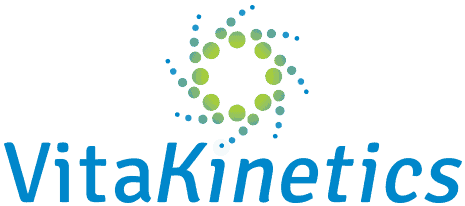Radically Resilient Health Podcast
Trusting Your Healthcare Provider
Connie Wray and Dr. Carolyn Dolan discuss the importance of understanding
how to choose the right doctor and what goes into finding one your can trust.
Transcript:
Connie Wray: (00:00)
Welcome to radically resilient health with Dr. Carolyn Dolan. I’m so excited to talk with her this week about something. I think we’ve all kind of struggled with, and that is trust during these very challenging times. Over this pandemic, we have really started to question our trust in our medical providers and Dr. Carolyn Dolan’s podcast, radically resilient health. We really talk about mind, body, and spirit, and that also includes trust. Welcome back to the podcast, Dr. Dolan. I’m really excited to talk with you about this because you and I have had some very extensive conversations about how we can find better trust in our healthcare providers at a time, I would say it’s imperative that we are having important conversations with our health care providers set aside COVID, but just making sure that we have that trust and how important that trust is, so that you can maintain better health throughout your life.
Dr. Carolyn Dolan: (01:00)
This, this is such an important topic, both like, like you mentioned, both related to current pandemic times, but really it’s an important component. And I wanted to share a bit of a personal story and sort of how this came, came forefront to my mind. My middle son has been having migraine headaches that we’ve been trying to sort out, just make sure it’s nothing scary and I ended up with an appointment with our healthcare provider, a pediatric neurologist, uh, along with my pediatrician and such. And I was just, I was just so impressed. Like I hadn’t met this person before, but the nurse practitioner we were working with really sat us down and did a really thorough exam and discussion. And she really worked on focusing in on some of these fundamental principles that I’m speaking about. She, she talked to us specifically about nutrition and making sure our son was eating enough and eating healthy foods.
Dr. Carolyn Dolan: (02:01)
And she talked about sleep and, and, you know, w where our sleep habits were, she talked about stress management. She talked about physical activity. So she really talked about all of these fundamental principles. And, and I sat there for a moment and really digested what she was saying. No, I mean, she’s essentially preaching to the choir, of course, right? Like that we do things pretty good, but we needed some reminders of, you know, like he needs to be eating more consistently because he’s in these rapid growth stages, but it, and she talked about vitamin D three. I mean, it was really, it really was this moment in time. And I thought, wow. You know, I have spent a lot of time in my past sort of evaluating my relationships with other healthcare providers and really either feeling like they were never discussing these things, or nobody ever brought these issues up with me.
Dr. Carolyn Dolan: (02:57)
And I thought, wow, I really want this person on my team, because I really like where she’s headed with this and what she’s paying attention to. And she really gave us a protocol and it was really nice to have her reiterate some of the things I’ve said in front of my son, right. So my son was like, oh, maybe, maybe I should listen to some of these things mom is saying, and it just reminded me about the process of we were discussing trust and how it is so important that when you are choosing your healthcare providers or whoever’s on your healthcare team, is somebody that you do trust, but that you’re not just blindly trusting them necessarily, but that you can trust them with this sense of curiosity, that you can ask questions that they will respond to you and accept some of those questions.
Dr. Carolyn Dolan: (03:47)
And sometimes that does take some investigative work and sort of searching for a team of people. And we’ve had to do this a couple of times when circumstances have required. And that is same goes for not just your M D provider, but if you have any sort of integrative health practitioners, that they are people that you can trust and ask questions to, because it’s not a either, or it really isn’t. And right. Like I want to trust my physicians, my MDs, I want to trust my integrative health practitioners. I need to be able to have people surrounding me that, that I can trust when I’m trying to work through some challenging health situations. And this was just such a really good reminder for me. And I thought, oh, we should really cover this on one of our podcasts, because I think it’s really important. And especially during these times where things are challenging, we do have to step back and have some, some trust in people and our healthcare providers. I think
Connie Wray: (04:59)
There’s also a point to where you need to trust yourself. And I think what you said earlier about are you having these conversations, can you ask your healthcare provider, the questions you want to ask them that comes from a level of trust? And I’ve had two experiences where I have kind of blindly thought, well, this is the doctor and they know best. And what I was forgetting was the part of listening to my own body and trusting what my body was saying, where I had an incident, uh, when I was first beginning to deal with hip issues, where I went to some doctors that were just not listening to me. And I felt that they were not hearing the, the level of pain I was in or here I was not even in my forties. And they were saying things like, well, well, we’ll put you on these medications and we’ll hope for the best.
Connie Wray: (05:49)
And we’ll try these things. And I just thought to myself, wait a minute, that doesn’t sound right to be this young dealing with that level of pain. So then it was okay, I’m not trusting this physician. I need to find someone I do trust. I was able to then find a physician that happened to be your husband. That was someone I immediately trusted. They were very upfront and honest with me about what was going on. And I think that goes back to also trusting my own body. I knew something else was wrong and I wasn’t getting the answers from the original physician I was with.
Dr. Carolyn Dolan: (06:27)
Well, and it’s a, it’s a mutual relationship, right? And I think as healthcare providers, we too have to practice the same sort of process of trusting our patients with a sense of curiosity as well. You know, when and trust that they will follow through to the best of their ability with whatever plan has been worked or developed. But I do think that it’s important and it, and it’s important to both be heard and seen, but as a provider to also be somebody who, who was willing to listen and it’s mutual, right? And I think that’s really, that is really important and an open-mindedness, but you bring up another point. That kind of brings me to my second point about trusting ourselves and trusting our body, which was the other important thing where we have to have a sense of pause, where we can trust that our bodies are trying to do what they need to do to help us.
Dr. Carolyn Dolan: (07:29)
Right. You know, we’ve talked a lot about inflammation in this podcast, and same as the development of Vitakinetics, but it’s also the trust that our body is trying to do what it needs to do. And we need to pause and listen and have trust and faith in that process and listen, and say, okay, how, what is my body trying to tell me, you know, this symptom, what is this what’s causing the symptom or the signal, and what do I need to give it do, is it, I really need to focus in on rest and, and trying to improve my sleep. Is it telling me that it’s in pain because I actually have an underlying injury and I need to follow up with someone regarding that, or am I having excessive inflammation because I’m drinking soda all day long. And so now my body’s not able to heal, or I’m having pain related to my sugar consumption, you know, those sorts of things, or is my back sore because I’m sitting all day in front of a computer and I need to find a way to start moving. So it’s trusting our body, but with a sense of curiosity, like, Hmm, what are you, what are you trying to tell me? And where can I go to get help to understand that? And that goes back to the trusting your healthcare providers and your team of people.
Connie Wray: (08:52)
I think what’s interesting too, is that we are at a turning point right now. I think through the pandemic, we’ve watched medical providers, uh, criticized some, or we’re criticizing them, or we’re, we’re not understanding the amount of work that goes into what they’re doing, or even trusting that they have that best interest at heart. Do you think Carolyn, that this is, we’re kind of rounding coming out of the pandemic, rounding a corner in regards to how we see healthcare?
Dr. Carolyn Dolan: (09:30)
I, I certainly hope so, but I think it’s more of a symptom of an underlying issue that we’re, we haven’t, we’re exposing these issues during this time of crisis where we’re realizing we’re not trusting each other, just, period, as a, as a culture, as a community. And I know for me, I’ve fallen into that personally, and I’ve had to really just sort of take a pause and say, you know, I have to trust my fellow human being that they’re going to be making the best decision, both for themselves and for our community. And, and there, there are people who aren’t and I’ve just like, I would choose my healthcare team of people that I would trust, or my surgeon that I’m going to trust, or my rehab professional or my integrative practitioner that I I’m trying to include people in my life that I trust.
Dr. Carolyn Dolan: (10:28)
Not that we all have the same opinions and are the same, but maybe that we’re all coming with an open mind so that we’re not closed off to new information or new ideas so that we can continue to learn. and so I’ve really consciously fallen back on my, on this trusting again, like we said, with curiosity, but being very, purposeful, very purposeful with it. And I do hope that this, we can learn from this and we can shift our trust. And again, this is not indicating that we shouldn’t be asking questions or questioning things as much as trusting the process, right? Trusting the process of science and learning, trusting our neighbors, and also accepting that when it, someone has shown you that they’re not in a trustworthy relationship that you plan appropriately, but I do hope that I think, what I’ve seen, I mean, the pandemic has really pushed this issue forward, man, there are far more good people and trustworthy people and healthcare providers and even leaders far more that that are trustworthy working towards the best interest of our community. Then the opposite.
Connie Wray: (11:57)
I think it’s a time to, of us reevaluating, not just healthcare providers, but the people around us. Right. I mean, I know that during COVID, it was a very stressful time. We’ve had a lot of conversations on the podcast about finding ways to deal with that stress. And for me, I really noticed too, that there are individuals in my life that I don’t want to say I’m cutting them out, but I’m realizing that that negativity is not something I, I want in my life. I’m trying to connect with people that are a little more open-minded in certain ways, how can I diversify and hear different views so that I can continue to be an open-minded individual? So for me, I’ve noticed that I’ve kind of made this shift in really evaluating the people I surround myself with. And I know that, um, you know, even in health, right, we we’ve talked a lot about it’s difficult sometimes if you’re married and one of you is really trying to improve your health and the other is not, it can be a struggle.
Connie Wray: (13:02)
And so for me, it’s the same way. How can I find people that have the same kind of mindset or they’re, they have a mindfulness about them? That’s who I want to be around right now. That’s what I need in my life. So being able to, you know, find the, the diversity of people so that I can, can learn from them. Obviously I want to find someone with a similar mindset, but also for similar, in the sense that we both are trying to be mindful and hear other opinions. I think that that is what is going to keep us growing and understanding other concepts and ideas is that open-mindedness. And I think we’ve just gotten stuck to this like black and white mentality and healthcare and health or health of our bodies is constantly changing. We’re learning more and more every day through science. And we need to trust in that.
Dr. Carolyn Dolan: (13:57)
And I have fallen victim to the, trying to get to that black and white, because that seems so simple or idealistic. and, you know, trusting the process has really brought me back to where we have to be in a constant state of open-mindedness. And, and there are certain things, I mean, there are certain things that clearly we recommend, uh, within Vitakinetics, like, you know, eating nutritious, nutrient dense foods like sugar is, uh, you’re going to have a hard time convincing me that soda with the refined sugar is a healthy option. Like there, you know what I’m saying? Like that seems pretty black and white, but can some people have it play a part in their, their lives? And it doesn’t seem to have the negative impact at certain dosing or they, they, can consume those things and not drink two liters of soda, you know, th there, yeah.
Dr. Carolyn Dolan: (15:00)
You know, and, you know, there are certain things where people can modify and have different reactions to, but either way, it requires coming to the table with this open-mindedness and an acceptance that we are really all different and surrounding yourself with open-minded people does not mean you’re surrounding yourself with people who are all like you with the exact same opinions you’re surrounding yourself with, because some people are asking really good question and that’s, you know, we want people to be asking those questions, but we both have to be responsive and accepting much. Like we talked about this mutual trust with curiosity with your healthcare provider, we have to both be open and willing to answer those questions, not defensively and people have to be willing to hear those answers. I mean, if you’re, and that’s where we’re really talking about coming back full circle into this trusting with the sense of curiosity, both about yourself, personally, about the people around you and about the people you, you trust to help you maintain your health or solving some difficult problems.
Connie Wray: (16:10)
You know, what’s interesting is I found that before COVID, we were already kind of starting to see a shift in, in healthcare where it really truly was about how can we help people better maintain their health. So they’re not coming in and we’re really providing sick care. And I thought that prior to COVID, we were really on that path now. So, so more than ever that pathway to maintaining your health is so important. We need to be listening to our bodies. We need to have the healthcare provider. That’s going to say, Hey, I’m noticing that you’re gaining weight. What can we do to, to reduce that? How can we help you, uh, focus on, on health so that you can have longevity and live a healthier lifestyle. And I want to find physicians and medical professionals that are continuing to focus on healthcare and keeping me healthy as opposed to sick care.
Dr. Carolyn Dolan: (17:07)
Well, and what’s the same per a pound of prevention. Now what’s, uh, what’s the saying prevention is worth a pound of prevention is worth a, something, a cure or more something like that. We’ll have to look that one up, but I think pound of
Connie Wray: (17:24)
Prevention is worth an ounce of cure.
Dr. Carolyn Dolan: (17:26)
Yes. A pound of prevention is worth an ounce of cure. And man, have we really just hit that button right with this pandemic, right? That we are really starting to expose how sick we really are. And that the treatment, even with the best of treatments of any disease process, you’re still better off working towards prevention and not depending on said treatment. And when we want to have good treatments for things that we can’t prevent, but that even if you end up sick and you’re coming at that sickness with a healthy body, a healthy mind body spirit, that the treatment is going to be far more successful than, than if you’re not. And so all of these things we’re talking about from the fundamental perspective to get you through challenging times, I mean, they’re still so important to maintain work towards that preventative piece, and that should you happen to fall ill with some disease injury process that you’re going to be better off coming out of that with treatments, if you’ve taken care of it. And I think that’s so important. And, and I think it’s getting a bit lost because we’re so focused specifically on the pandemic alone, it’s getting a little bit lost. I agree. We were building this moment but it’s so important now, but, and, and my experience is that now that we are having to interact with healthcare providers for different reasons, right? I mean, they are speaking the speak, you know, they’re, they’re talking to their patients about this, and I think we should really be celebrating that
Connie Wray: (19:07)
Well, and you look at even improvements within healthcare to keep the healthcare professionals healthy, right? We’re having conversations about how healthcare providers themselves were not taking care of themselves. They work incredibly long hours. You look at through this pandemic, how we saw nurses and doctors that were working, you know, months on end would never a day off. And I’ve talked to many of, I have friends that are nurses that and doctors that said, Connie, the biggest challenge I had was trying to maintain my, my own health, my own, making sure I was eating right. And I’m on these crazy schedules. And even for them, the realization of how important it is for a health care provider to be healthy became even more of a priority. And I think that that’s something that we’re starting to see, more hospitals are looking at, how am I providing the best healthcare for my healthcare providers in the sense of, am I making sure that they’re eating the right foods? How can I help them maintain their health so they can continue to support the community. We really need to look at all components of how we’re taking care of our caregivers.
Dr. Carolyn Dolan: (20:23)
That’s
Connie Wray: (20:23)
What I see walking out of this pandemic. I w I have always loved and appreciated healthcare workers and what they provide and what an incredible, uh, opportunity they provide and give to us the average person. And now I see even more of a value and of a risk that they take. That’s why for me, I’m so appreciative and I’ve learned so much about the importance of medical providers during all of this. I never want to take them for granted. They give so much, so let’s make sure that we’re helping them maintain their health so they can stay in those caregiving positions,
Dr. Carolyn Dolan: (21:04)
Right? It is important. And this goes beyond healthcare providers, right? That we we’ve talked about. I mean, in our local community, with all the fires, the firefighters, the police, the emergency crews, the all of those supportive staff. And you focus in on that mental health piece and making sure that we provide the things that they need so they can both continue to do what they do for us. And it is so important, but it, it, it comes back around to this, this relationship of trust that we are all working towards a betterment, both of ourselves and our communities. And we have a willingness to be curious about it and ask, ask questions, answer questions, and, and accept that in a trusting relationship versus feeling, feeling attacked so
Connie Wray: (21:58)
Well. And, and I would say too, if you have a moment go to the Vitakinetics website Viatkinetics.com and you have so many wonderful testimonials from individuals that are either, either their doctors that are prescribing the Vitakinetics to their patients, or you, you know, you haven’t had first responders, you have a deputy, who’s a frontline worker. That’s really trying to provide an immune support for himself. And you can really see through your testimonials and everyday person who like myself that had an injury, that’s trying to recover to first responders and frontline workers and medical workers that see Vitakinetics as a vital tool in maintaining our health. This supplement is making, giving us an opportunity to heal our bodies faster. And I just really would suggest anyone. If you have some time, the testimonials are wonderful. You’re really see an insight into how Vitakinetics is playing an essential role for so many community members and on different levels.
Dr. Carolyn Dolan: (23:03)
Well, and I feel so honored to play a role in someone’s seeking their health and recovery from injury. And again, it’s, it comes back to that trust with curiosity, right? And in a relationship that we offer something for an another, in a supportive fashion and that a lot of those other stories, like we just interviewed another leader in our community about how he sort of selected his team when he had his injury. And it included, you know, his family, his wife providing the nutrition and he, you know, trusted, trusted her to do she needed to do, to support them through that process and picking the right healthcare provider, the right surgeon, the right rehab professional, and Vitakinetics got to play a role in, in his recovery process. So and it, it fundamentally was he had to find his team of which he trusted and was able to ask questions. And it was a mutual relationship, really excited for our next episode, where we get to interview Daniel liftoff, right. Battleborn health.
Connie Wray: (24:16)
Yeah. This is going to be a great, it’s kind of a nice little lead up, but yes, Daniel Litoff is with Battleborn health at Danielle is the owner and the lead physical therapist at Battleborn health. And she works with both her physical therapy patients and our functional medicine clients to really help them achieve their whole health goals. She’s also a provider who suggests the use of Vitakinetics to some of her patients. And I’m excited to talk with her about her relationship with Vitakinetics, as well as her relationship with many of your principles that you’ve talked about and how this is playing a role in the recovery of many of her patients eat well, move well, sleep well, supplement. Well, how important those principles are to the overall health and wellbeing of, of her patients as well.

Mena
Radically Resilient Health Podcast Small Steps Conquer Mountains with Special Guest Mena Spodobalski Evoke Fitness owner, Mena Spodobalski, shares her joys and struggles toward radically resilient health. Health doesn't always have to seem radical. The best workout...
Recovery From Substance Dependency With Lori Windfelt
Radically Resilient Health Podcast Recovery From Substance Dependency With Lori Windfelt Radically Resilient Health is not about the absence of disease, injury, or stress, it is the ability to recover and make positive choices to support your overall health. Lori...
Emotional and Mental Resiliency – With Special Guest Dusty Braun
Radically Resilient Health Podcast Emotional and Mental Resiliency With Dr. Dusty Braun Our mind and body are intimately interconnected in ways that we can't really comprehend outside of science. We oftentimes think ourselves or our minds as separate from our body,...
Available at our partner locations

690 West 2nd St. Suite 101
Reno, NV 89503

13981 S Virginia St #402b,
Reno, NV 89511








